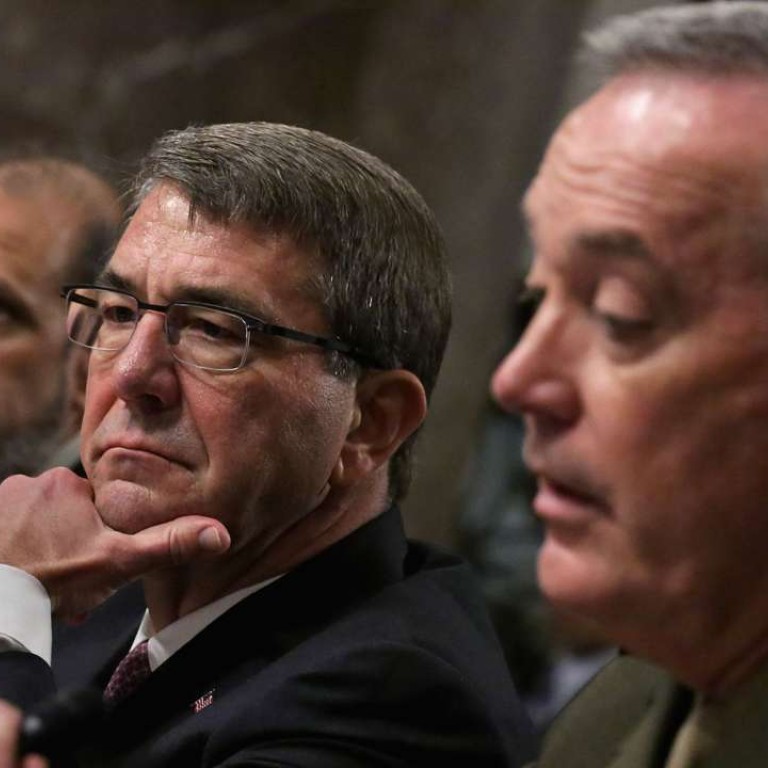
Pentagon likely destroyed evidence in NSA whistle-blower case
A federal watchdog has concluded that the Pentagon inspector general’s office may have improperly destroyed evidence during the high-profile leak prosecution of former National Security Agency official Thomas Drake.
The Office of Special Counsel, which is charged with protecting federal employees who provide information on government wrongdoing, said its review of the handling of the Drake case had determined that there is “substantial likelihood” that there had been “possible violations of laws, rules or regulations” in the destruction of the evidence.
The counsel office’s review, which was made available to McClatchy, states the allegations had been “transmitted” to the Justice Department’s inspector general for further investigation and that the Justice Department had agreed to open a probe by June 1.
John Lavinsky, counsel for the Justice Department inspector general’s office, declined to comment on whether an investigation was underway, saying it was his office’s practice not to either “confirm or deny the existence of investigations”.
Drake’s lawyers and the Office of Special Counsel also declined to comment.
The referral, contained in a document dated March 18, gives credence to Drake’s claims that the Pentagon inspector general’s office did not properly maintain his confidentiality after he cooperated in 2002 and 2003 with congressional inquiries and a Pentagon inspector general audit of the National Security Agency’s controversial surveillance programmes.
If whistle-blowers can’t get a fair shake, then they won’t make disclosures, and wrongdoing will just continue
Drake was charged in 2010 with violating the Espionage Act for retaining national defence information for the purpose of disclosing to the news media. He was also charged with obstruction of justice, as well as making false statements to the FBI.
Drake alleged that the prosecution was part of a campaign by the NSA to silence him and push him out of his government job after he secretly met with inspector general investigators as a whistle-blower and gave them evidence for their audit.
The government’s case against Drake fell apart in 2011, and he was sentenced to probation after pleading guilty to a minor misdemeanour for exceeding the authorised use of a government computer.
Drake was one of the first officials to be targeted by the Obama administration under the Espionage Act for allegedly leaking to the news media.
The Pentagon inspector general’s office concluded Drake was a whistle-blower. However, it found there was no evidence that NSA officials pursued him because of that cooperation. The NSA also denied retaliating against him.
The government’s handling of documents related to Drake first became an issue during the evidence-gathering stage of Drake’s leak prosecution when his criminal defence lawyers sought records related to his whistle-blower cooperation. At the time, the Justice Department told the judge that most of the “hard copy documents” related to that cooperation had been destroyed “pursuant to a standard document destruction policy”.
Drake’s current lawyers, who didn’t represent him in the criminal case, told a federal judge in an April letter that they’d learned that the Pentagon inspector general’s office destroyed the documents “outside of normal policy and to impede ... the criminal case”.
The Office of Special Counsel’s review reached the conclusion there was enough evidence to investigate that allegation.
The likely outcome of the Justice Department inspector general inquiry is unclear. The expected probe of top Pentagon inspector general officials was described as administrative, a process that could lead to reprimands, security clearances suspensions or firings, said people familiar with the inquiry. They asked to remain anonymous because the probe has not been made public.
The referral renews broader questions about the federal government’s dedication to protecting intelligence community or Defence Department employees who blow the whistle on wrongdoing.
Senator Chuck Grassley, said allegations of poor treatment of whistle-blowers “might be just the tip of the iceberg”.
“These are very serious allegations against DOD OIG senior leaders,” he said in a statement, referring to the Pentagon inspector general’s office with an acronym. “This kind of behaviour isn’t just bad for the whistle-blower. It’s also bad for the agency. If whistle-blowers can’t get a fair shake, then they won’t make disclosures, and wrongdoing will just continue.”
The special counsel referral arose from one of a series of still-secret complaints filed by multiple former and current officials in the Pentagon inspector general’s office about the office’s handling of whistle-blower cases.
The group, whose identities are protected as part of the whistle-blowing system, accused senior officials within the inspector general’s office – including those with the general counsel’s office – of attempting to water down or change findings in whistle-blower investigations because of fear of political controversy.
The Office of Special Counsel noted it usually would have referred the matter back to the secretary of defence for investigation but had determined such a referral “would not be appropriate” to have the Pentagon investigate its own watchdog. The Pentagon Inspector General has jurisdiction over the NSA because it is part of the Defence Department.
A spokeswoman for the Pentagon inspector general’s office said her office agreed with the decision.
“The DOD IG welcomed an appropriate independent investigation of the allegations and contacted the DOJ IG to request that they investigate,” the spokeswoman, Bridget Serchak, said.
The current acting Pentagon inspector general, Glenn Fine, a former Justice Department inspector general, did not hold the position at the time of the allegations.

